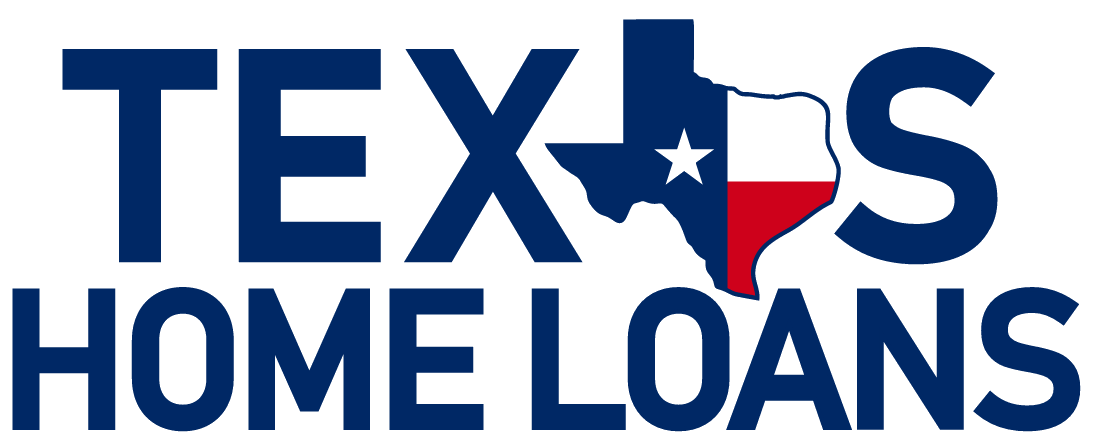When it comes to financing a home in Texas, I've seen many buyers struggle with…
Decoding VA Loan Funding Fees in Texas
Are you a veteran living in Texas looking to buy a home? If so, you may be eligible for a VA loan, which offers benefits like no down payment and competitive interest rates. However, before you dive in, it’s important to understand the funding fees associated with VA loans. In this blog post, we’ll break down everything you need to know about VA loan funding fees, including their purpose and how they work in Texas. We’ll also explore the fee structure and factors that influence it, as well as exemptions available for certain veterans.
The Basics of VA Loan Funding Fees
Understanding VA loan funding fees is essential for eligible veterans seeking a VA home loan. These one-time payments for loan funding vary based on the loan amount and type, supporting the Department of Veterans Affairs’ VA loan program and future homebuyers. The fee can be rolled into the total loan amount, easing the financial burden for VA borrowers. It’s crucial to comprehend the fee structure as it impacts first-time as well as subsequent borrowers, ultimately affecting the real estate investment process.
The Purpose of VA Loan Funding Fees
Enabling the federal government to provide favorable home loan terms for eligible veterans, VA funding fees play a crucial role in sustaining the VA home loan program. This support benefits active duty, veterans, and eligible surviving spouses, ensuring their long-term viability. Understanding the purpose of these fees is key for informed decision-making when considering a VA loan. By comprehending the significance of funding fees in the context of their VA home loan, homebuyers are empowered to make well-informed choices.
How VA Loan Funding Fees Work in Texas
VA loan funding fees in Texas, like in other states, are calculated as a percentage of the total loan amount. These fees vary for regular military, Reserves, and National Guard, impacting the overall home loan costs. It’s crucial for homebuyers in Texas to understand the eligibility criteria for funding fee exemptions, potentially saving on upfront expenses. This knowledge is particularly vital for veterans and active duty personnel pursuing a VA home loan in Texas, as it can directly impact their mortgage closing costs and real estate investment.
Decoding the VA Loan Funding Fee Structure
Deciphering the VA loan funding fee structure involves considering various factors such as loan type, down payment, and subsequent use of the home loan benefit. It’s essential to understand that VA funding fees for purchase loans differ from those for Interest Rate Reduction Refinance Loans (IRRRL). Furthermore, the fee rates for regular military, Reserves, and National Guard members necessitate careful consideration for accurate budgeting. Empowering veterans and active duty personnel with knowledge about the fee structure enables sound financial planning and a clear understanding of its impact on the total loan amount and life of the loan.
Factors Influencing the VA Loan Funding Fee
Understanding the components impacting the VA loan funding fee is crucial for veterans and military personnel. The fee calculation considers the loan amount, subsequent use, and the borrower’s military category. Additionally, factors like the loan closing date, balance, payment amount, credit score, and home purchase details influence the funding fee for VA loans. By comprehending these elements, individuals can make well-informed decisions regarding their home loan costs and financial planning.
Estimating Your Potential VA Loan Funding Fee
Estimating the potential VA loan funding fee involves considering VA funding fee rates, loan type, down payment, and subsequent use. You should also explore funding fee exemption eligibility to reduce upfront costs. Accurately estimating the fee helps in planning for total home loan amount and closing costs. While an additional expense, the funding fee is crucial for budgeting a VA home loan. Utilize available resources for informed financial preparations.
Comparing VA Loan Fees with Other Mortgage Options
When considering mortgage options, comparing VA loan fees with other types of home loans can be enlightening for eligible veterans. VA loans often come with benefits such as no mortgage insurance, competitive interest rates, and lower closing costs. Understanding the differences between VA loans and FHA loans is crucial for making well-informed decisions. Compared to conventional loan options, VA loans generally present financial advantages, contributing to long-term savings for veterans. This comparison showcases the favorable aspects of the VA home loan program.
VA Loans vs FHA Loans
When considering mortgage options, it’s essential to compare VA loans with FHA loans. VA loan borrowers benefit from lower interest rates and no mortgage insurance, setting VA loans apart from FHA loans. Eligible veterans should explore funding fee exemption eligibility, impacting upfront costs unique to VA loans. Understanding the differences between VA loans and FHA loans is crucial for informed home loan decisions. This comparison provides veterans with valuable insights, aiding them in choosing the most suitable mortgage option.
Benefits of Choosing a VA Loan
When considering a mortgage, eligible veterans benefit from competitive interest rates and favorable loan terms with VA loans. Unlike conventional loans, VA loans offer no mortgage insurance, reducing total home loan costs. The program also supports new home purchases tailored to veterans’ specific needs, providing long-term financial advantages for active duty, veterans, and eligible surviving spouses. Understanding these benefits empowers veterans to make advantageous mortgage decisions.
Exploring VA Loan Funding Fee Exemptions
Exploring VA loan funding fee exemptions involves understanding eligibility criteria for veterans receiving VA compensation for service-related disabilities. This comprehension aids in minimizing upfront costs and potentially qualifying for favorable loan terms and reduced closing costs. Thorough exploration ensures informed home loan decisions, highlighting the importance of considering VA loan exemptions. Veterans benefit from exemptions, impacting the upfront costs unique to VA loans, thereby empowering them for advantageous mortgage decisions.
Criteria for VA Loan Funding Fee Waivers
Veterans with service-connected disabilities may qualify for VA funding fee exemptions. Additionally, certain surviving spouses and National Guard/Reservists may also be eligible for exemptions under specific conditions. Those entitled to receive VA compensation for service-related disabilities or rated by the VA as eligible for such compensation are exempt from the funding fee. Understanding these criteria is crucial for eligible individuals seeking to minimize upfront costs and secure favorable loan terms.
Process for Applying for an Exemption
Applying for a funding fee exemption involves different procedures for veterans, surviving spouses, and National Guard/Reserve members. Eligible veterans need to complete VA Form 26-8937, while surviving spouses can submit VA Form 26-1817. National Guard and Reserve members can request the exemption through their lender. Providing proof of disability or qualifying documentation is essential for eligible veterans, and lenders must verify the exemption status through the VA. These steps streamline the process for obtaining a funding fee exemption.
VA Loan Funding Fees for First-Time Home Buyers
For first-time home buyers utilizing the VA loan program, a funding fee is applicable and varies based on the loan amount and type. The fee percentage is reduced for subsequent borrowers, and it can be financed as part of the total home loan amount. Additionally, those with service-connected disabilities may be exempt from the funding fee. This exemption provides valuable financial assistance to first-time home buyers, making homeownership more accessible and affordable.
What First-Time Home Buyers Can Expect
First-time home buyers should be prepared to cover the funding fee during closing, unless eligible for an exemption. The funding fee paid by first-time home buyers contributes to the sustainability of the VA home loan program for future veterans. When calculating the total loan amount, first-time home buyers need to factor in the funding fee, which varies depending on the loan amount and type. Detailed in the VA loan closing documents, the funding fee for first-time home buyers is a crucial aspect to consider when entering the real estate market.
Resources for First-Time Home Buyers
First-time home buyers can seek guidance from the VA regional loan center for funding fee exemptions. Financial advisors offer assistance in understanding the fee’s impact, while lenders specializing in VA home loans provide valuable insights. Accessing the Department of Veterans Affairs helps in obtaining information on funding fee exemptions, and the VA home loan program offers educational resources to understand funding fee details.
The Impact of VA Loan Funding Fees on Refinancing
Refinancing through the VA loan program incurs funding fees, albeit at a lower amount for subsequent borrowers. The funding fee for refinancing varies based on the loan and total home loan amount, impacting the total loan amount for subsequent borrowers. It’s crucial for eligible veterans to understand the timing of the funding fee for refinancing. Refinancing veterans should evaluate the total loan amount, including the funding fee, for cost-benefit analysis, ensuring a well-informed decision-making process.
Analyzing the Cost-Benefit of Refinancing
Analyzing the cost-benefit of refinancing involves factoring in the impact of the funding fee on the interest rate reduction refinance loan. Veterans must consider this fee when evaluating the total loan amount for accurate cost-benefit analysis. Consulting mortgage lenders for detailed information on the funding fee and using online mortgage calculators for estimation can be helpful. Additionally, seeking professional financial advice can aid veterans in assessing the funding fee’s cost-benefit implications for refinancing. This process can provide valuable insights into the financial implications of refinancing.
Understanding the Refinancing Process
Veterans considering refinancing should carefully review the funding fee details with their mortgage lender. Typically, the funding fee for refinancing is added to the total loan amount, affecting the loan’s duration. Closing costs for refinancing encompass the funding fee, a one-time payment due at the closing of the new home loan. It’s essential for veterans to discuss these costs with their lender and request a breakdown of the funding fee and other associated expenses before finalizing the refinancing process.
How to Pay the VA Loan Funding Fee
Veterans have multiple payment options for the VA loan funding fee, providing flexibility to suit their financial situation. They can pay the funding fee upfront, reducing the total loan amount and interest paid over the loan’s life. Alternatively, the funding fee can be financed as part of the total loan amount, impacting the payment amount. Eligible veterans also have the option to include the funding fee in their loan balance, distributing the payment over time. Understanding these payment options is crucial for veterans considering the VA loan program, requiring discussions with their mortgage lender prior to closing the loan.
Payment Options for the VA Loan Funding Fee
Veterans exploring VA loan funding fee payment options can consider paying it upfront at the closing of their new home loan. Alternatively, they may choose to spread the fee over the loan balance, providing flexibility. By including the funding fee in the total loan amount, veterans can impact their interest rate and payment. It’s crucial for eligible veterans to discuss these options with their mortgage lender to understand the overall impact on their home loan.
Integrating the VA Loan Funding Fee into Your Home Buying Budget
When planning your home purchase budget, it’s crucial to factor in the VA funding fee as it can be included in the total loan amount. Understanding this fee is essential for accurately calculating the total loan amount, especially as VA funding fee rates vary based on the type of home loan and the down payment. This fee plays a crucial role in your VA home loan program and must be integrated thoughtfully into your budget to ensure a smooth home buying process.
Does the VA Loan Funding Fee Affect the Overall Cost of Home Ownership?
The VA loan funding fee has a direct impact on the total cost of home ownership. It affects both the overall loan amount and the monthly payment. Understanding this fee is crucial for eligible veterans as it influences the home purchase process and helps in making informed decisions about their loan.
Frequently Asked Questions
What is a VA loan funding fee, and how does it work?
A VA loan funding fee is a one-time fee borrowers pay to support the VA loan program. Its amount varies based on factors such as loan type, military service status, and down payment. The fee can be paid upfront or added to the total loan amount. Disabled veterans may be exempt from paying the fee.
Can the VA loan funding fee be rolled into the overall mortgage amount?
Yes, the VA loan funding fee can be rolled into the overall mortgage amount. This allows borrowers to avoid upfront payment. However, keep in mind that rolling the fee into the mortgage will increase the loan balance and potentially result in higher monthly payments. Consult a VA-approved lender for specific loan terms.
Are there any exemptions or reductions for VA loan funding fees in Texas?
Certain veterans in Texas, including those receiving disability compensation, may be exempt from VA loan funding fees. Surviving spouses of veterans who died in service or due to service-connected disabilities may also be eligible for exemption. Active-duty service members who have received a Purple Heart are also exempt. Contact your VA lender or the Texas Veterans Land Board for more information on exemptions and reductions.
Conclusion
Understanding VA loan funding fees is important for those using a VA loan to buy a house in Texas. These fees influence the overall cost of homeownership and require careful consideration while budgeting for a new home. To make informed decisions, decode the fee structure and estimate potential fees before comparing them with other mortgage options. Exploring exemptions and waivers can save you money. Whether buying or refinancing your first home, being aware of VA loan funding fees will help navigate this process confidently. Carefully consider payment options and calculate these fees into your budget. Make informed decisions for your home buying journey by understanding VA loan funding fees.






